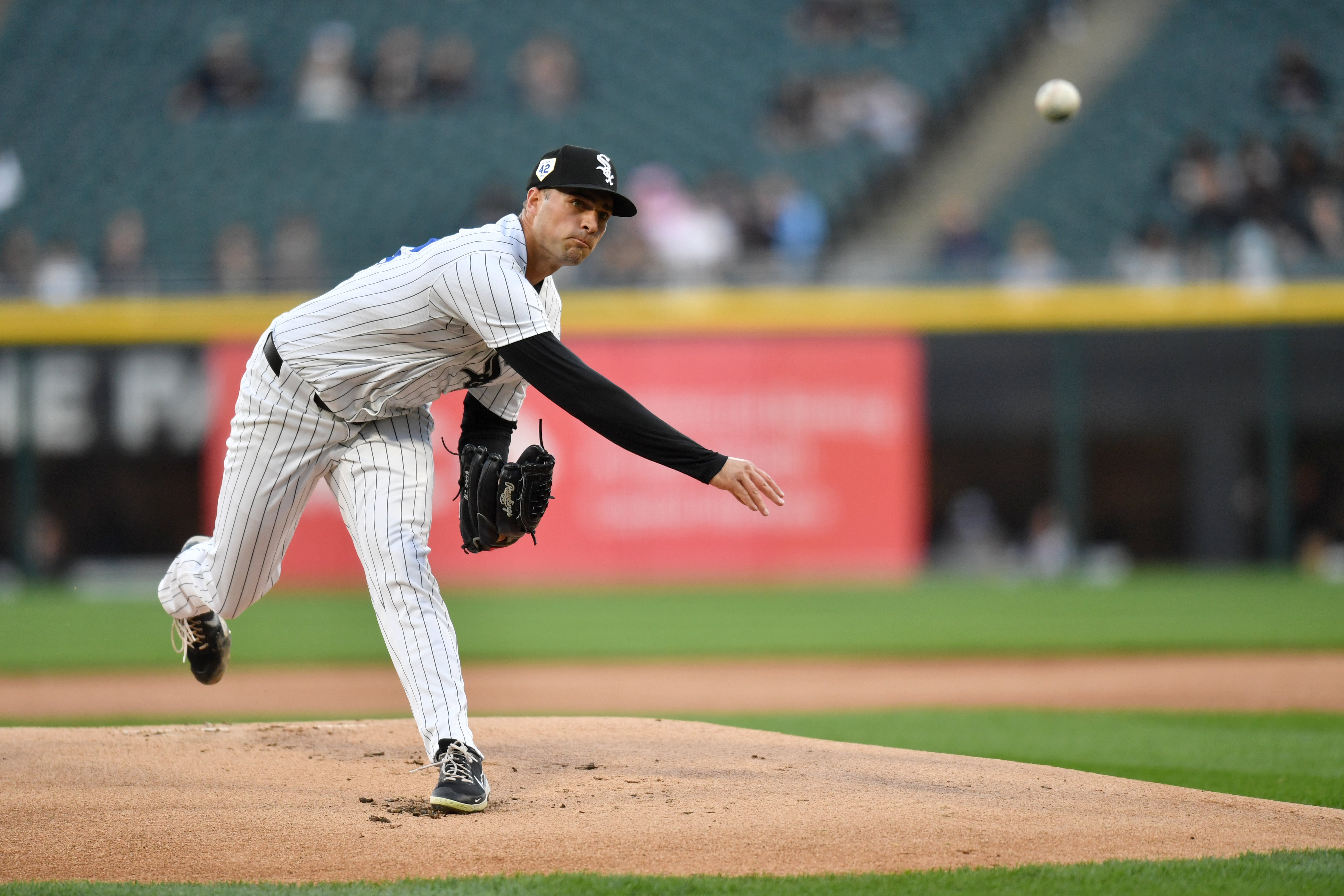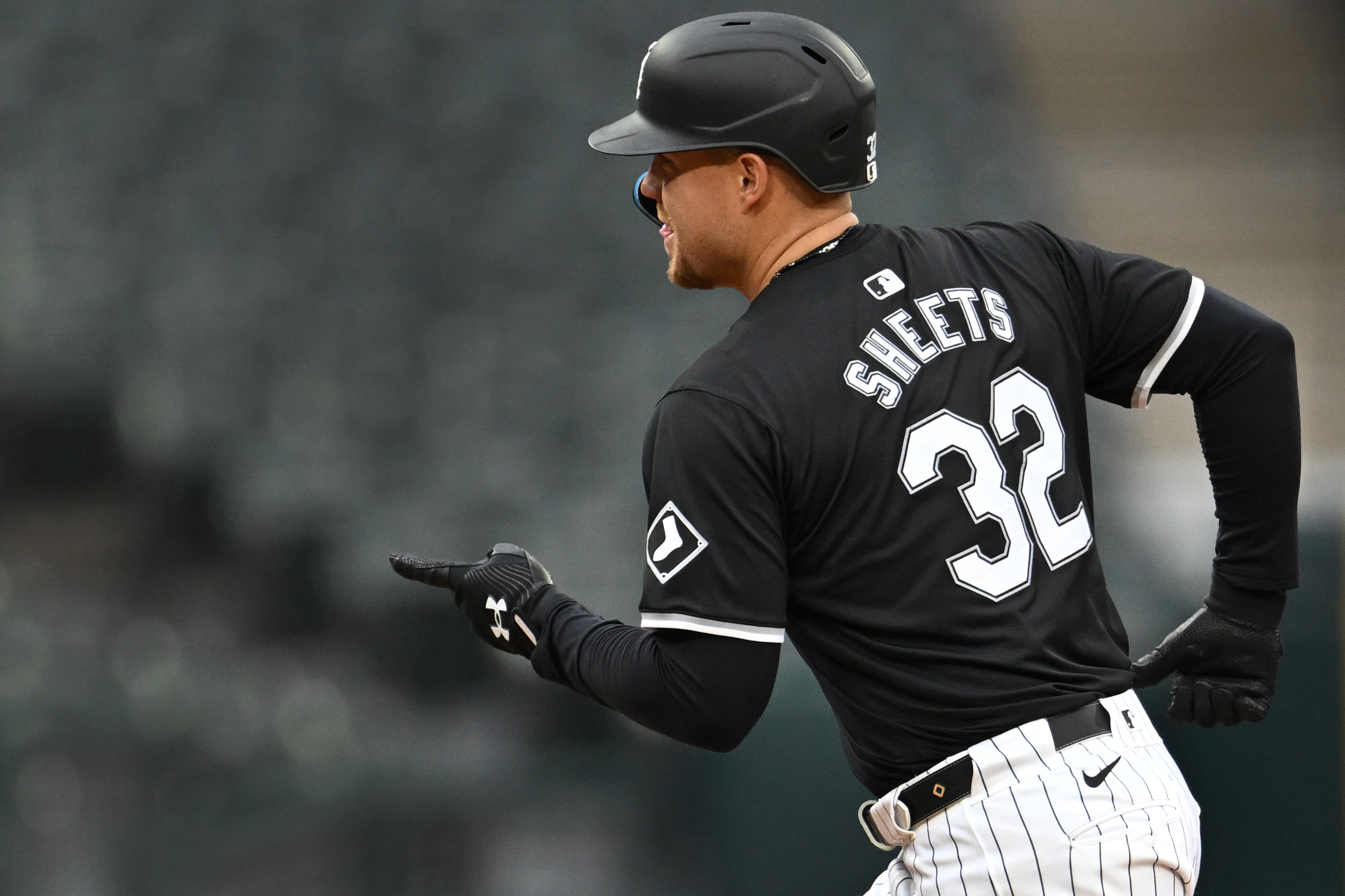Three-year-old Nolan Kogut made his first visit to Wrigley Field last Sunday and his father, Kevin, carefully handled a certificate heralding the occasion while his son shouted "Go Cubs!" long before the start of the game.
At the very end of one terrible summer for baseball in Chicago, the Koguts are keeping their faith with the family's team on the North Side. But they are frustrated and disappointed, and they are not alone.
"I assumed we would have improved significantly compared to last year," said Kevin Kogut, 36, a systems administrator from Galesburg. "It seems like we've gone, actually, backwards on some of the big pieces that we've had."
It's a common sentiment from Wrigleyville to the blue-collar neighborhoods on the South Side: The baseball season can't end quickly enough in Chicago.
The Cubs and White Sox are poised to finish last in their respective divisions in the same year for just the second time, and first time since 1948. The 188 losses through Tuesday night's games are the most for Chicago's two teams since they also lost 188 times during the 1980 season, according to STATS.
Decades after Ernie Banks declared "Let's play two" during his time with the Cubs, it seems as if one more game is one too many for the Windy City.
"The way the year's gone, it's been pretty much bad after bad," White Sox second baseman Gordon Beckham said. "Every time you think it can't get any worse, it does. It's been a rough summer. I didn't even know what the Cubs were doing, to be honest. Whatever they're doing is not necessarily what I am looking at, but it's just one of those years. It just didn't work out for us, personally. A lot of things didn't go our way."
Chicago Baseball
All those losses have taken a toll on the attendance. The White Sox have played in front of small crowds most of the summer, and even the famed bleachers at Wrigley had glaring empty patches for some prime games.
The White Sox, who contended for the AL Central title last year before finishing with an 85-77 record, are averaging 22,140 at U.S. Cellular Field heading into their closing four-game series against Kansas City. That's down from 24,271 last year and marks the seventh straight year in decline.
Long one of the city's most famous landmarks, Wrigley Field attracts tourists each summer. But the average attendance for the Cubs has been shaved to 32,706 per game, down from 35,590 in 2012 and the fifth straight season of decreasing numbers.
"It's been a tough season, but what are you going to do?" said Joe Eichhorn, 70, a lifelong White Sox fan and retired auditor from Woodridge. "The seasons go up and down. After last year, it was tough."
Eichhorn said his wife, Linda, is a Cubs fan and used to share a ticket package with three other people for their games. But she decided after last season she didn't want it anymore.
"So she bought a dog and named him Wrigley," Eichhorn said with a grin.
Cubs fans have had no choice but to be patient with a World Series championship drought that dates to 1908. But a string of four consecutive losing seasons is testing their "Wait until next year" attitude.
Chicago's NL team went 61-101 last year for its first 100-loss season since 1966, and a couple more of its best players were traded away this summer as Theo Epstein continued to rebuild the Cubs' minor league system. Looking to the future has made for a rather miserable present that includes an NL-worst 30-50 home record, a whopping 26 blown saves and a paltry .219 batting average with runners in scoring position after Tuesday night's 8-2 loss to Pittsburgh.
To make matters worse, the Cubs had to watch the Braves and Pirates each celebrate a playoff berth at Wrigley Field in a span of two days.
"We have a lot of close games and we just haven't been able to come back or rally at home," manager Dale Sveum said after Sunday's 5-2 loss to Atlanta.
Edwin Jackson, the Cubs' big offseason signing, leads the majors with 17 losses, and Epstein recently said he doesn't think the team will make a major splash in free agency over the winter.
The White Sox felt they had the personnel to challenge for a playoff spot coming into the season. The lineup had sluggers Paul Konerko, Adam Dunn and Alex Rios, and Jake Peavy was back to help solidify the pitching staff.
It just never worked out.
After sweeping a three-game series against lowly Miami to get to .500 in late May, the White Sox dropped 28 of their next 38 games. First-year general manager Rick Hahn traded Peavy to Boston in July and Rios to Texas last month. What's left is one of the worst offensive teams in the American League, ranking at or near the bottom in runs and homers.
"We're not playing any different than we did last year," closer Addison Reed said. "It's not like we came out of spring training trying to lose these games. There's really not one thing you can pinpoint, but it's baseball. Who knows? Next year we're going to come out and hope to have a good year and then things could be totally different than they were this year."
That's what Kevin Kogut is hoping for when it comes to his beloved Cubs, and maybe even the White Sox, too. This summer's misery is enough to make even the most hardened fans of each team look forward to better days for both clubs.
"It's still disheartening to see all those Chicago baseball teams just terrible," he said.



